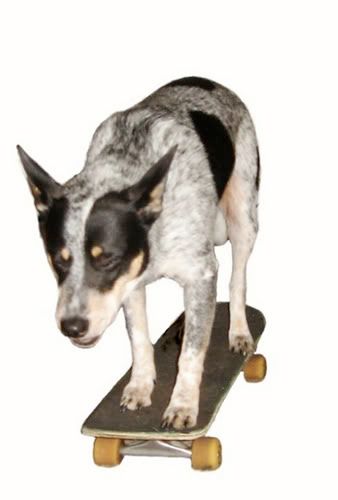This is a guest post by Caroline Casey–a dog lover.
Dog owners who attempt to train their dogs themselves may fall into common mistakes due to the fact that they fail to comprehend that dogs are social animals that rely on their humans (or pack leaders) to show them how to behave.
Failing to understand this fundamental aspect of dog psychology makes many dog owners fail in their dog training methods. Here are the top five training mistakes dog owners generally make:
- Inconsistency: It is very important to be consistent while training a dog. The same commands and criteria should be used consistently if the dog is to understand what is required of him. Inconsistency only serves to confuse the dog which not only leads to poor training; it can also cause the dog a lot of stress as well. Being consistent while housetraining a puppy or teaching basic commands is vital.
- Impatience: Patience is a virtue, especially when it comes to dog training. Some owners lose their tempers with their dogs and this only serves to confuse the dog further. Dogs respond to positive reinforcement better than harsh training methods. Rewarding a dog for good behavior is far more productive than constantly punishing him for unwanted behavior. Plus, focusing on the negative behavior can reinforce the undesired behavior because the dog interprets the attention as a good thing.
- Timing: Believe it or not, timing is an important factor in dog training. Many people wait a too long to begin training their puppy. The fact is, you can start molding puppy behavior about the same time you bring him across your threshold. Puppy training is an art in itself but attention span and willingness will deviate from puppy to puppy, and all efforts should be short and fun.
- Food Rewards: Some dog owners rely on treats to get behavior. Most dogs love treats, and many will do everything they possibly can to get the reward. However, giving your dog too many treats is not only bad for them but can create problems. Rewarding your dog during training requires consistency and clear goals. Gradually decrease treat giving and only offer treats for a job exceptionally well done. Keeping the dog in anticipation makes him sharper and more engaged in the training session. Additionally, there are numerous things that can be use as rewards besides food. Try gentle stroking, rubbing the belly, play, or use verbal praise as variations.
- Punishment on Recall: This is one of the most common mistakes many dog owners do when training their dog. Never, ever, under any circumstances call your dog to punish or scold him. This will only make him more reluctant to come when called. When you punish a dog after you call him, he learns to avoid coming to you because he gets punished for doing so.
About the Author: Caroline Casey, of Chazhound, is a long time animal enthusiast and doting dog owner. You can visit her site and forum for more articles and a selection of luxury dog beds.


